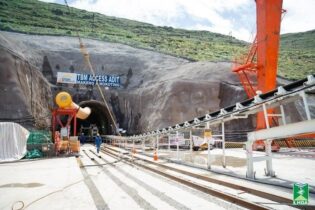Moshi Municipality in Tanzania is facing a growing risk of polluted groundwater and other sources of water by waste from pit latrines and floods, according to Head of Urban Planning and Lands Department of Moshi Municipal Council, Alex Poteka.
Poteka told the local Sunday News on Saturday that uncontrolled waste disposal in the highland and lowland areas contaminated rivers, natural springs as traditional water canals. “Car washing, farming, grazing of livestock, cutting down of trees, quarrying of sand and gravel has degraded the rivers that are vulnerable to erosion,” he said. Poteka, who is also the coordinator of Moshi Sustainable Progranmme, explained that deforestation in the neighbouring forest reserves affected the existing water sources and could reduce the amount of water supplied in the long run. He added that the on-going global warming was a threat to water sources. “Water from leaking pipes erodes land, whereas contaminated water causes water-borne diseases, such as diarrhoea,” said Poteka, who expressed misgivings that unless funds were made available to the municipal fathers, the problem might prevail with serious consequences.Geographically, he said, Moshi municipality boasted natural springs and rivers that were a major supply of safe and clean water to the municipal residents. He mentioned the rivers as Rau and Kiladeda. Mr Poteka said other existing natural springs were Nsere, Shiri, Njoro ya Dhobi, Kwajuma and Kwa Goa, which supplied water to Njoro, Msaranga and Kaloleni wards residents.
The number of temporary springs increased during heavy rainfall seasons, he added. According to Poteka, Mawenzi borehole, which is the ground water aquifer, was another source of water used by at least 30% of the Moshi municipal residents.Source: allAfrica.com







